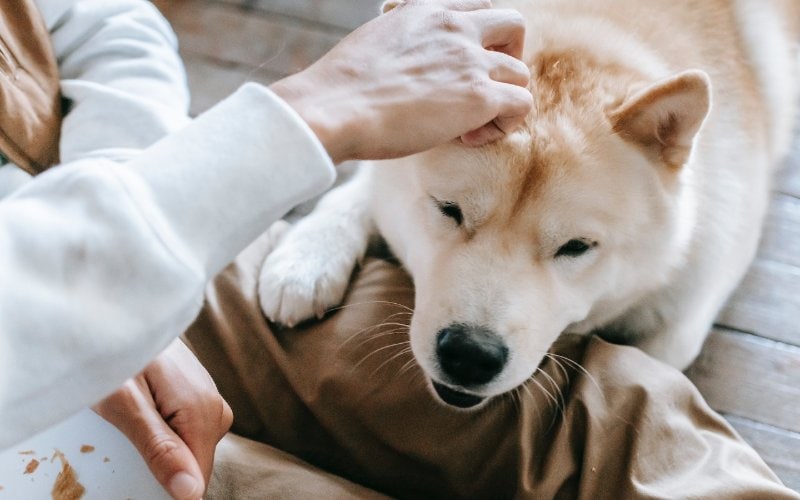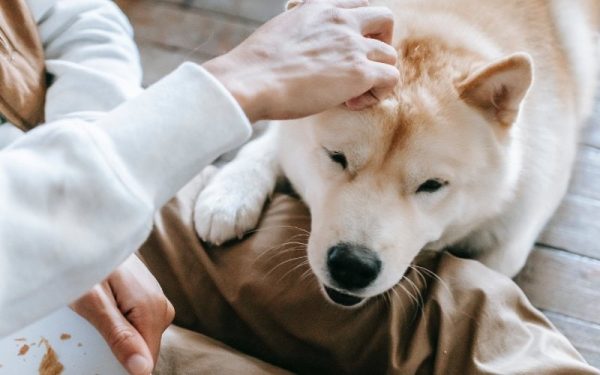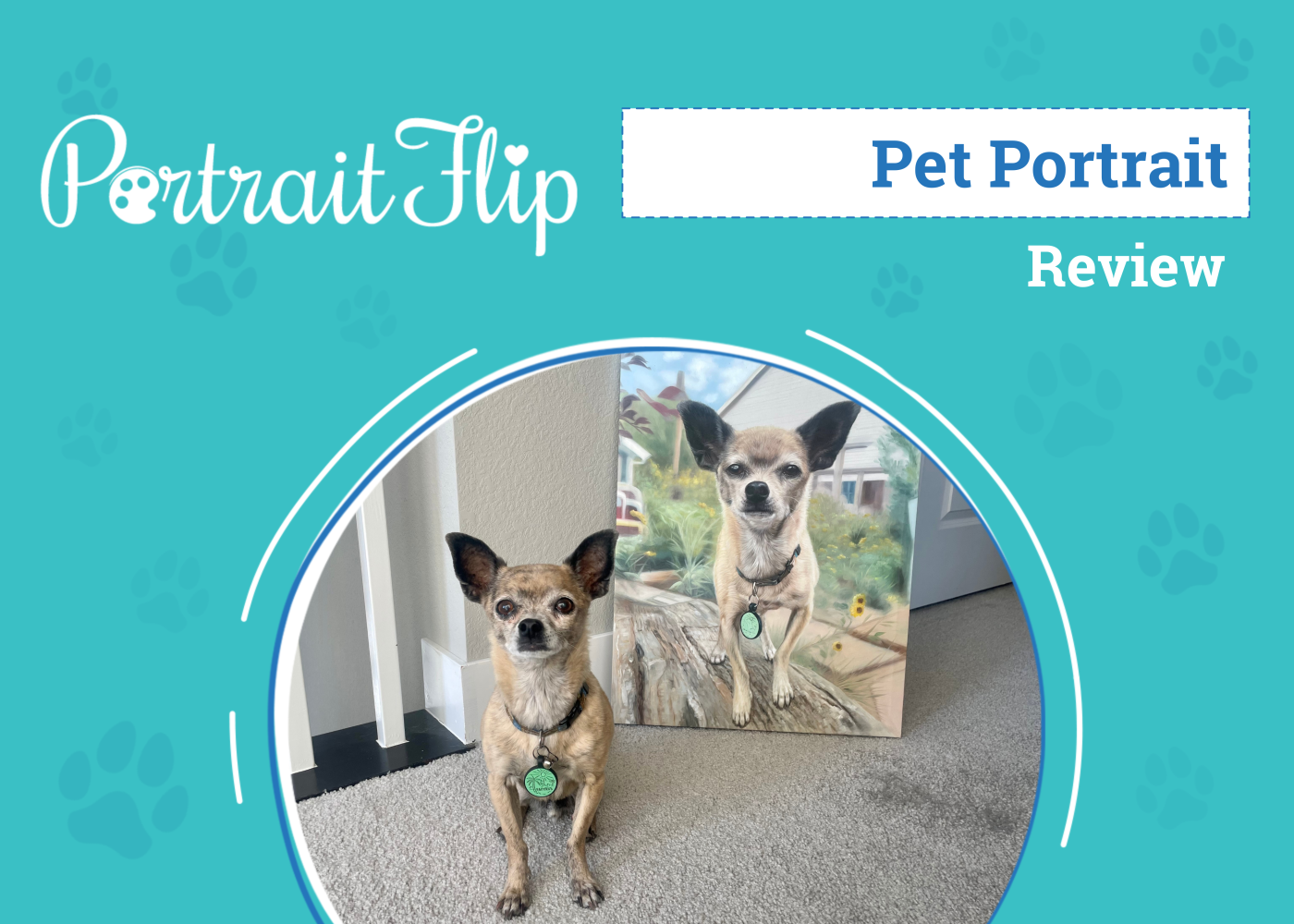Celebrating Canada Day is something that we all look forward to every year. After all, there’s nothing better than getting together with friends and family, enjoying the (hopefully) nice weather, and capping it all off with good food and fireworks!
But unfortunately, our canine best friends don’t feel the same — except for the food, of course.
Across the globe, 30% more dogs get lost during fireworks season, which includes Canada Day and the 4th of July. Some dogs also get injured or worse.
We hope to change that statistic with these 12 tips for keeping your dog safe during the next Canada Day celebrations or any other holiday with fireworks!
The 12 Most Important Canada Day Safety Tips for Dogs
1. Walk Your Dog Earlier Than Usual
Many neighbours like to start celebrating with their own firecrackers and fireworks as soon as it starts to get dark. Try to get your walk done by dusk so you can avoid any unexpected explosions.
You should also always have your dog leashed at this time, regardless of how well-trained your dog might be. The reason that animal shelters across Canada have a significant influx of lost dogs at this time is from dogs bolting out of fear. Dogs might also get injured from running onto the road.
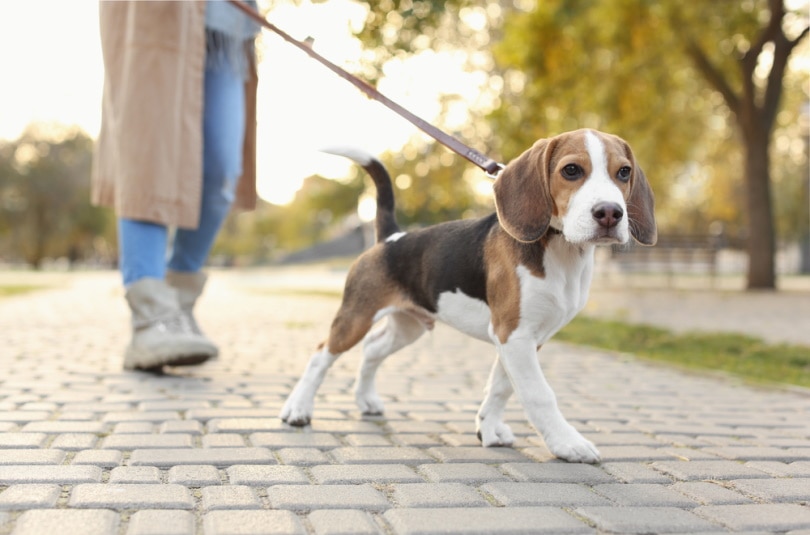
2. Avoid All Fireworks
When fireworks are going off, you should definitely have your dog inside. Don’t bring your dog to a fireworks event, whether at a friend’s backyard or one hosted by your community.
Besides, it’s hard to enjoy watching fireworks when your dog is in obvious distress. It’s not worth running the risk of losing them or seeing your best friend experiencing anxiety.
3. Ensure That Your Dog Has Updated Information
Make sure your dog’s ID tag has the correct address, and the microchip information is up to date. It can also help if you invest in a collar with GPS. This way, it is more likely that your dog will be returned to you, or you can track them yourself and bring them home.
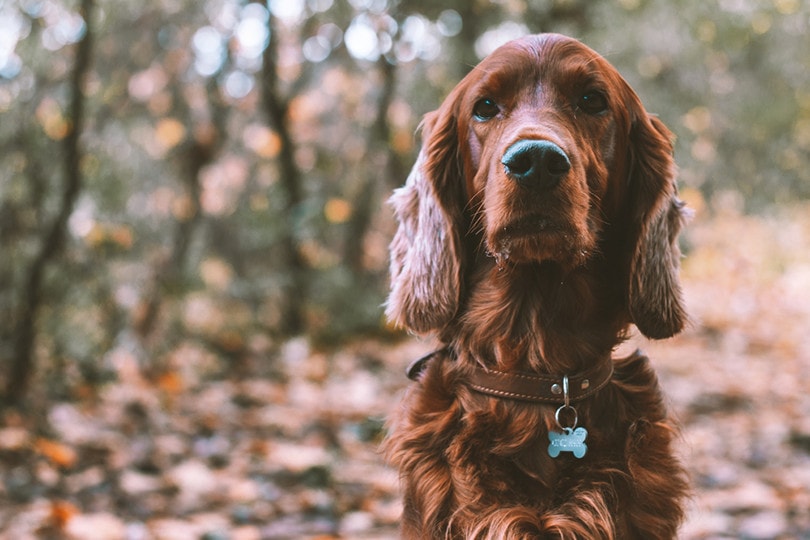
4. White Noise Can Be Your Friend
Playing sounds can help cover the fireworks’ noise to a certain degree. Try turning on the TV, the radio, or music. White noise is known to be effective at masking external noises.
It’s also been shown that classical music can have a calming effect on dogs. There’s even a Spotify playlist designed specifically for dogs.
Combine calming music with the fact that it’s helping to drown out the fireworks, and you’ll hopefully have a dog that’s more relaxed.
5. Make a Safe Space for Your Dog
Some dogs love their crate, or perhaps you have a comfy dog bed that they prefer. Invest in a cover for your dog’s crate, or place a blanket over it. This will help block out a bit of the noise and lights and can be a calming environment for some dogs.
Create a quiet space that’s not too close to windows — an area where the fireworks won’t be heard or seen, if possible. Give your dog their favorite toys or even new ones, which can help distract them.
Don’t forget to play music or turn on the TV if you can’t find an area that will drown out the explosions.
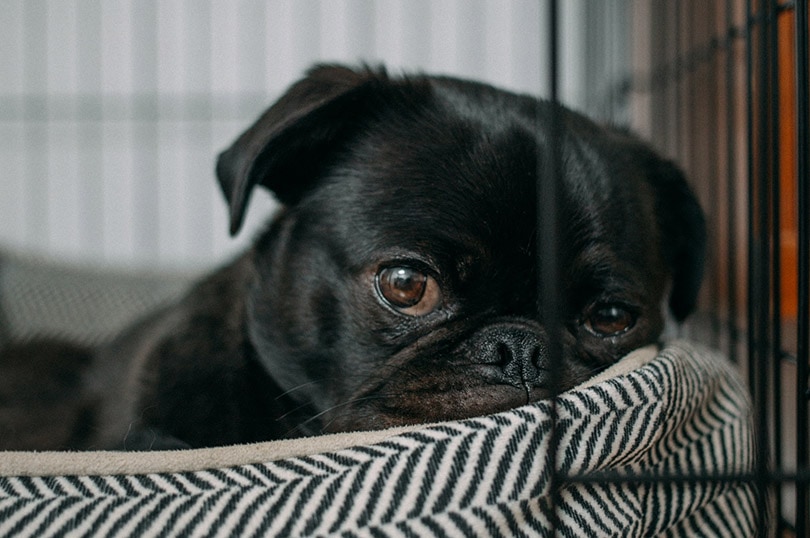
6. Stay With Your Dog
This is critical if your dog has severe anxiety over loud noises. If you can stay home with your dog, this can help with their stress, so if your dog is hiding in a closet, sit with them and remember to stay calm yourself.
It’s best to keep your tone gentle and soft and avoid any anxiety creeping into your voice. Your dog will pick up on this and think that something is wrong.
If you can’t stay with your dog, try to find someone whom your dog knows and trusts and ask them to do the same in your place.
7. Keep All Exits Closed
You should ensure that all doors, including any dog doors, are closed. For example, if you have your patio doors open because people are coming and going, a dog will likely bolt outside if they are startled by the fireworks. Double-check the windows too.
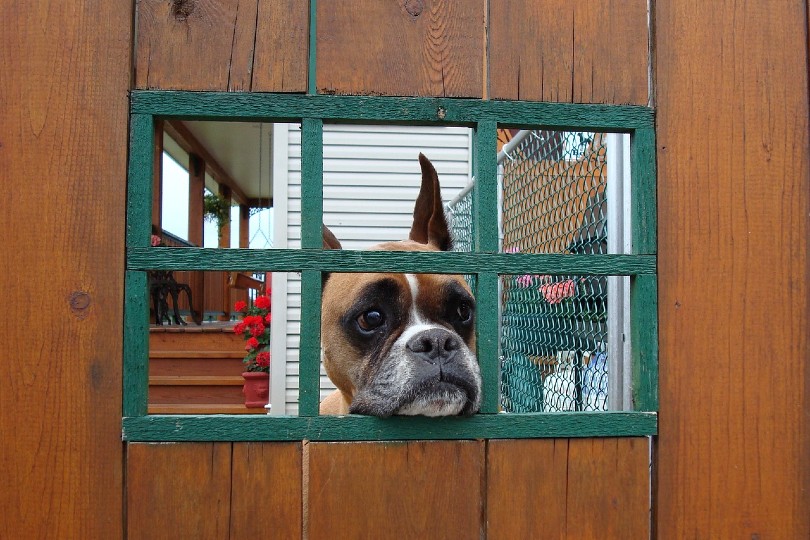
8. Speak to Your Family and Friends
If you are having a party or gathering, speak to everyone there about not letting the dog outside. Drive the point home that no door should be left open for any period.
You might also want to put notes on the doors to remind people to keep them closed and watch out for the dog.
Additionally, if your dog isn’t much for socializing with people, let them know to not seek out your dog and to give them space, unless your dog comes seeking attention.
9. Invest in Stress-Relief Products
You might have heard of or already have a ThunderShirt, which works quite well for some dogs with anxiety issues.
There are also treats designed to help stressed dogs, or you might want to speak to your vet about anti-anxiety prescription medication if your dog’s fear proves to be severe.
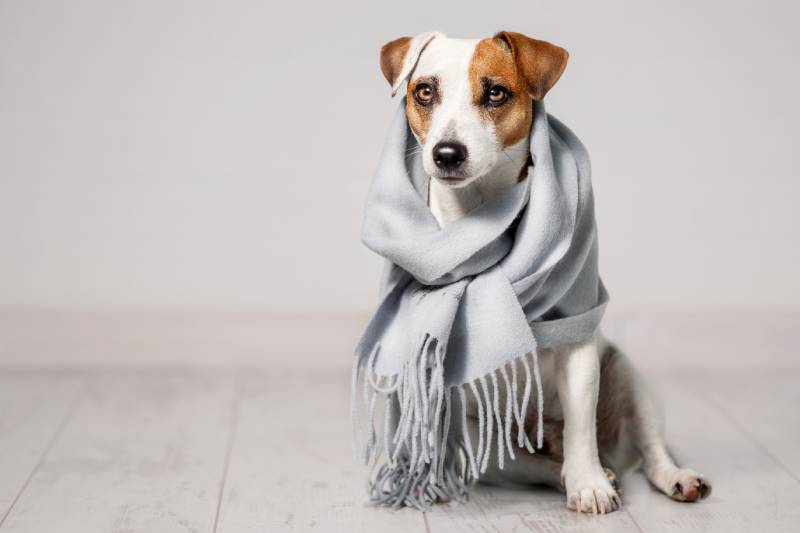
10. Cover the Windows
Covering the windows with curtains or blinds can help muffle the noise slightly, but more importantly, it can block out the flashes of light from the fireworks.
Finding a space without windows is even better, but blackout curtains also work. The sudden flashes of light with the explosions can be scary for some dogs.
11. Try Desensitization
You can use behaviour modification to help your dog become more accustomed to fireworks. Counterconditioning is a relatively slow process that you can try.
Start by playing the sounds of fireworks at low volume or even better, a video of fireworks, also at low volume.
Give your dog a treat while playing the fireworks video (or sound). If the video is causing your dog any stress, turn the volume down more. They should hear it but not be anxious.
When your dog seems comfortable, gradually raise the volume, and try using different videos and sounds so your dog will become accustomed to different types of fireworks. Don’t forget to give your dog a treat after every “lesson.”
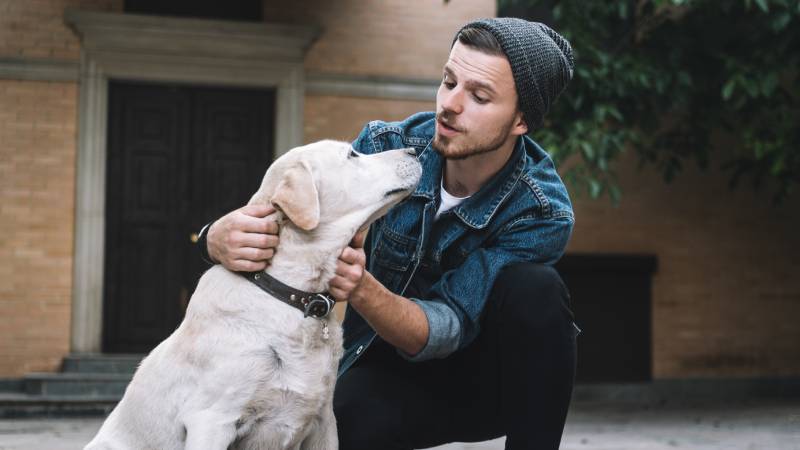
12. Hire a Behaviourist or Trainer
Even with their owners’ best efforts, some dogs will continue to have difficulties coping with loud noises. In more extreme cases or if you need advice and support, consider hiring a trainer or animal behaviourist.
They can give you a few pointers and steps to help desensitize your dog against loud noises.

Why Are Dogs So Afraid of Loud Noises?
Dogs are known to be afraid of loud noises — fireworks, of course, but thunder, cars backfiring, and even balloons popping can also cause a reaction in many dogs.
It’s estimated that 1/3 of dogs have a noise aversion, which can be initially triggered by a single event or through repeated experiences with distressing noises. They can react with a typical fear response, which almost any of us will do after hearing a loud thunderclap. But dogs with severe anxiety might stay in hiding far after the event.
The main issue is that there is no way to prepare a dog for a thunderstorm or fireworks. Everything is normal and quiet and suddenly, there’s an explosion of sound!
That said, thunderstorms technically do come with a bit of warning, including rain, a change in barometric pressure, and the slow approach of thunder. But fireworks can occur suddenly and randomly.
It’s also thought that some breeds aren’t that scared of fireworks — for example, hound dogs were bred for hunting and regularly exposed to gunshots.
But generally speaking, it’s normal for dogs to be afraid of loud noises because it’s a part of their survival instinct.
How Can I Tell If My Dog Is Afraid of Fireworks?
Most of the time, you’ll know when your dog is afraid of fireworks. Howling, yelping, and bolting are obvious signs. But some dogs might express their fear more subtly.
- Growling or whining
- Ears pinned back
- Shaking and trembling
- Hackles raised (fur standing on end)
- Extra needy or running away from you
- Excessive panting
- Drooling
- Pacing
- Shallow breathing
- Showing the whites of their eyes
Conclusion
While some dogs seem to be perfectly fine around fireworks, many are not. On the day of celebration, try to wear your dog out during the day. This way, they might be somewhat calmer in the evening.
As long as you prepare for the day and follow a few of these tips, Canada Day should be fun for you and not so terrifying for your best friend.
Featured Image Credit: Zen Chung, Pexels
Contents
- The 12 Most Important Canada Day Safety Tips for Dogs
- 1. Walk Your Dog Earlier Than Usual
- 2. Avoid All Fireworks
- 3. Ensure That Your Dog Has Updated Information
- 4. White Noise Can Be Your Friend
- 5. Make a Safe Space for Your Dog
- 6. Stay With Your Dog
- 7. Keep All Exits Closed
- 8. Speak to Your Family and Friends
- 9. Invest in Stress-Relief Products
- 10. Cover the Windows
- 11. Try Desensitization
- 12. Hire a Behaviourist or Trainer
- Why Are Dogs So Afraid of Loud Noises?
- How Can I Tell If My Dog Is Afraid of Fireworks?
- Conclusion

